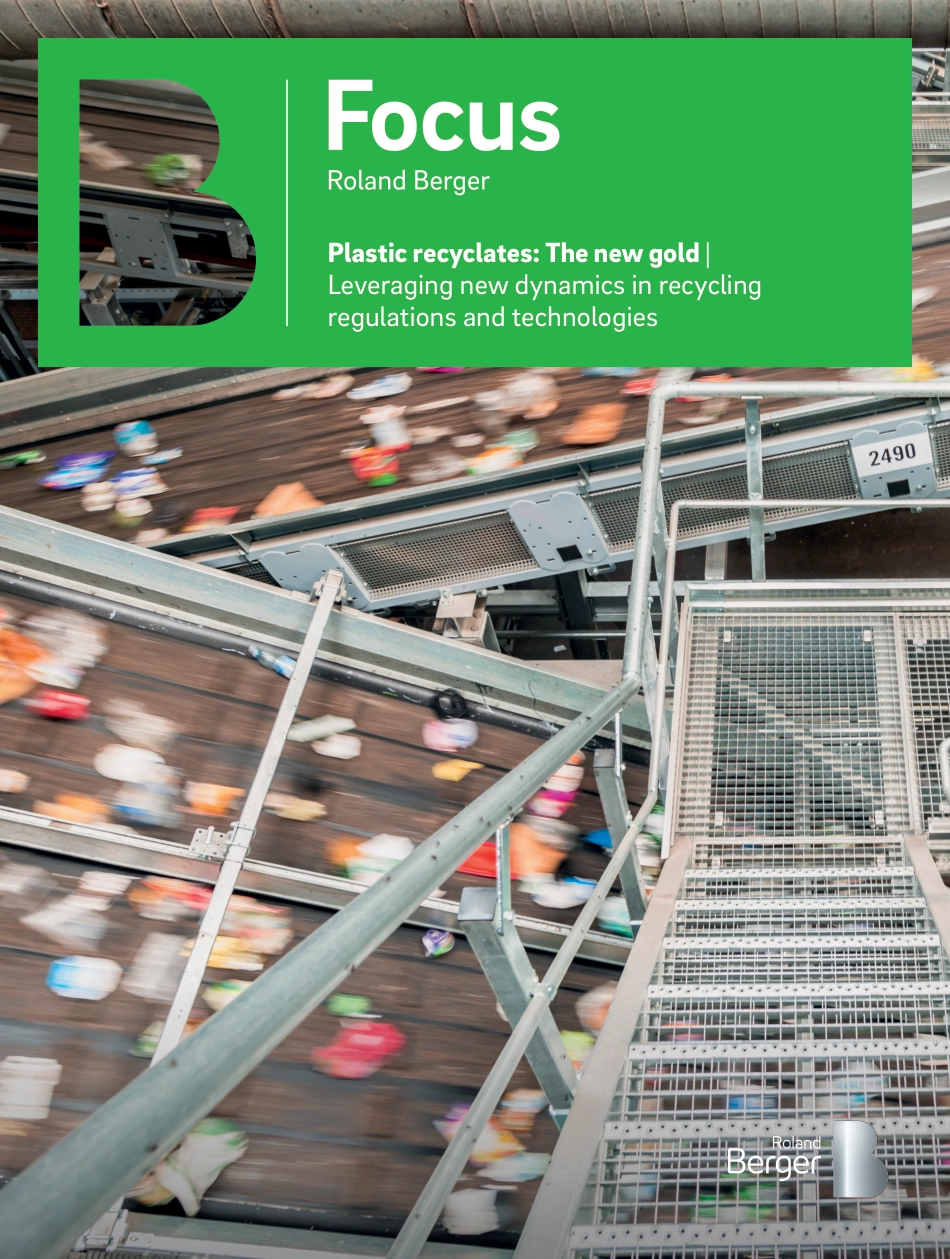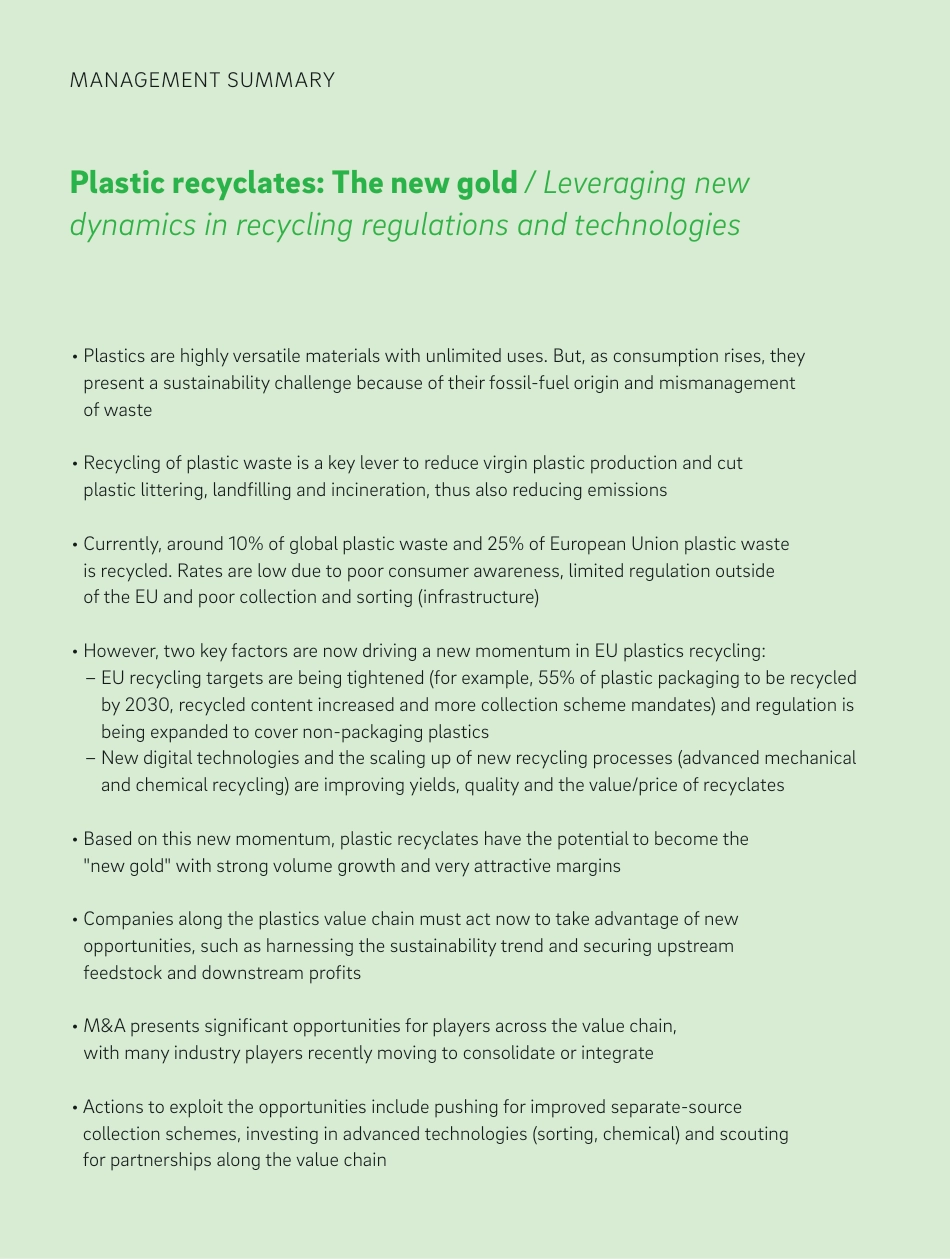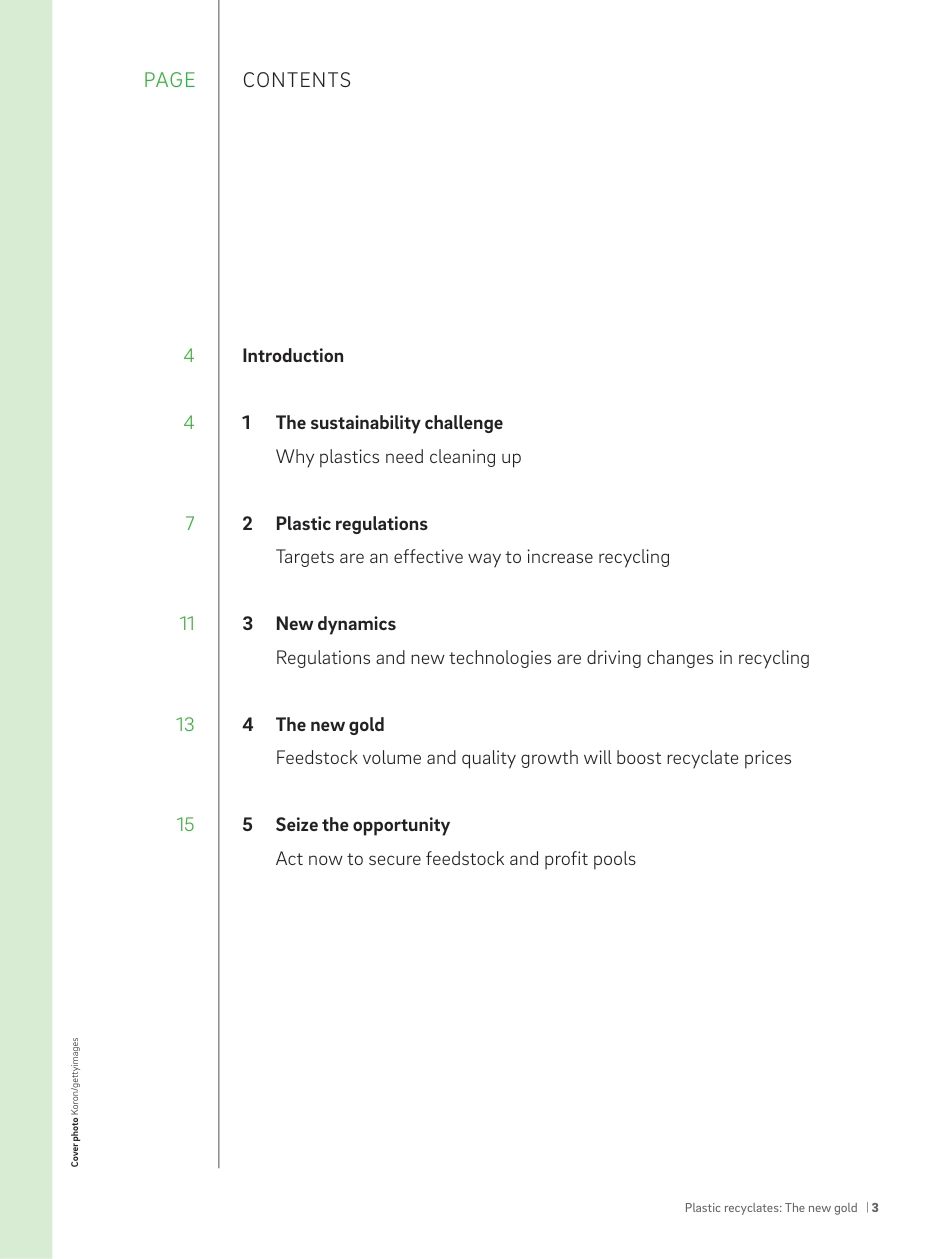Plastic recyclates: The new gold | Leveraging new dynamics in recycling regulations and technologies Plastic recyclates: The new gold / Leveraging new dynamics in recycling regulations and technologies • Plastics are highly versatile materials with unlimited uses. But, as consumption rises, they present a sustainability challenge because of their fossil-fuel origin and mismanagement of waste• Recycling of plastic waste is a key lever to reduce virgin plastic production and cut plastic littering, landfilling and incineration, thus also reducing emissions• Currently, around 10% of global plastic waste and 25% of European Union plastic waste is recycled. Rates are low due to poor consumer awareness, limited regulation outside of the EU and poor collection and sorting (infrastructure) • However, two key factors are now driving a new momentum in EU plastics recycling: – EU recycling targets are being tightened (for example, 55% of plastic packaging to be recycled by 2030, recycled content increased and more collection scheme mandates) and regulation is being expanded to cover non-packaging plastics – New digital technologies and the scaling up of new recycling processes (advanced mechanical and chemical recycling) are improving yields, quality and the value/price of recyclates• Based on this new momentum, plastic recyclates have the potential to become the "new gold" with strong volume growth and very attractive margins • Companies along the plastics value chain must act now to take advantage of new opportunities, such as harnessing the sustainability trend and securing upstream feedstock and downstream profits • M&A presents significant opportunities for players across the value chain, with many industry p...



